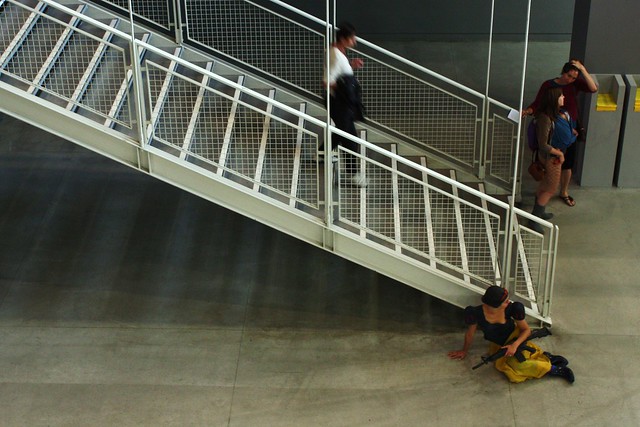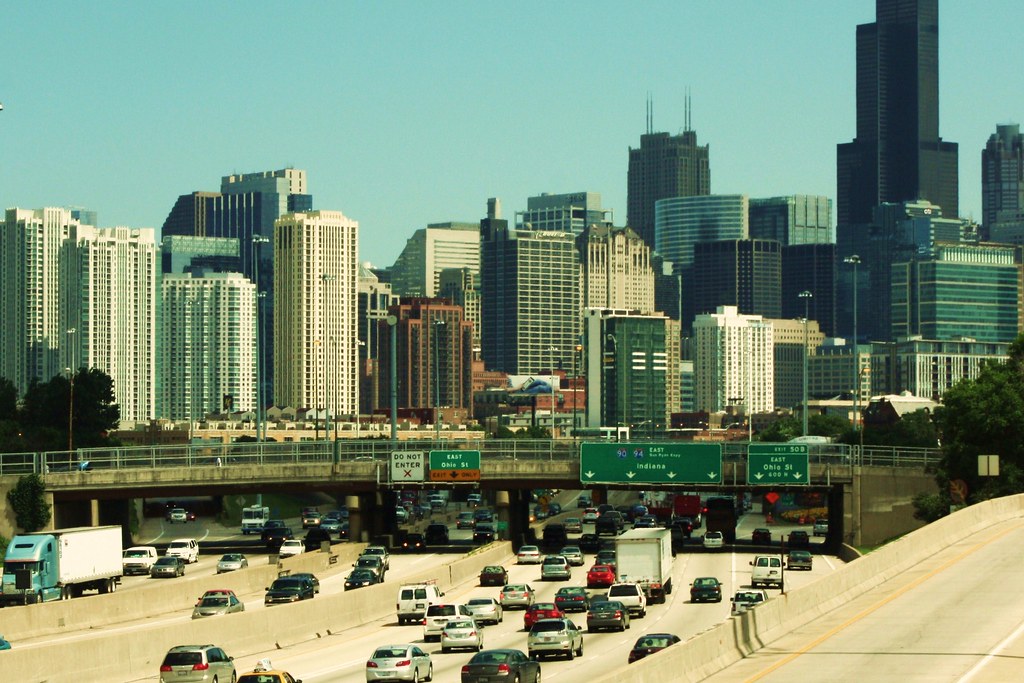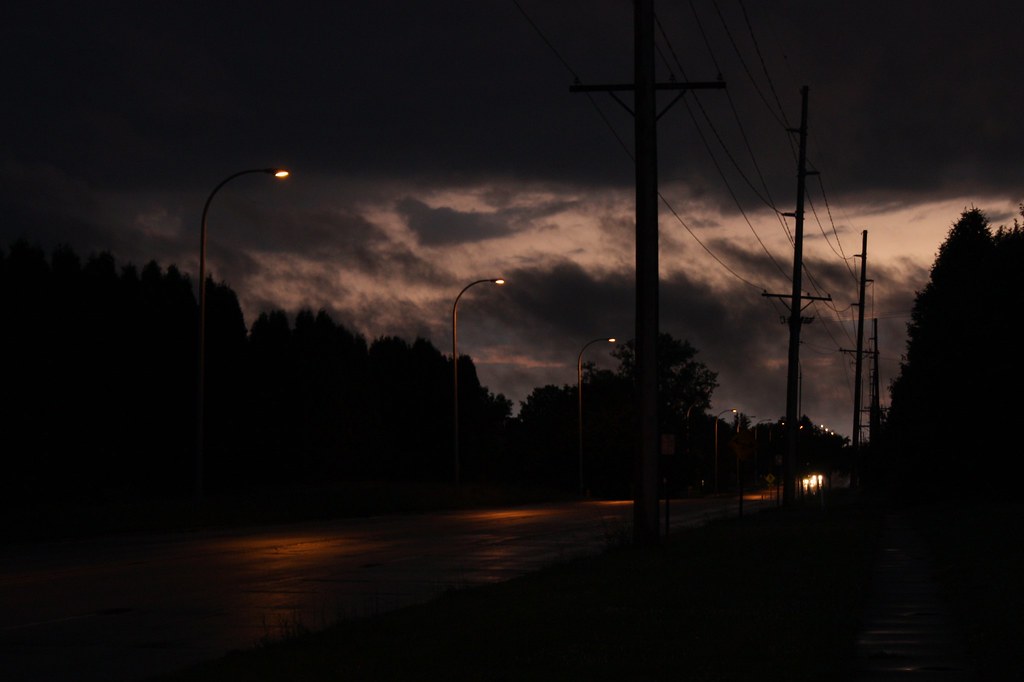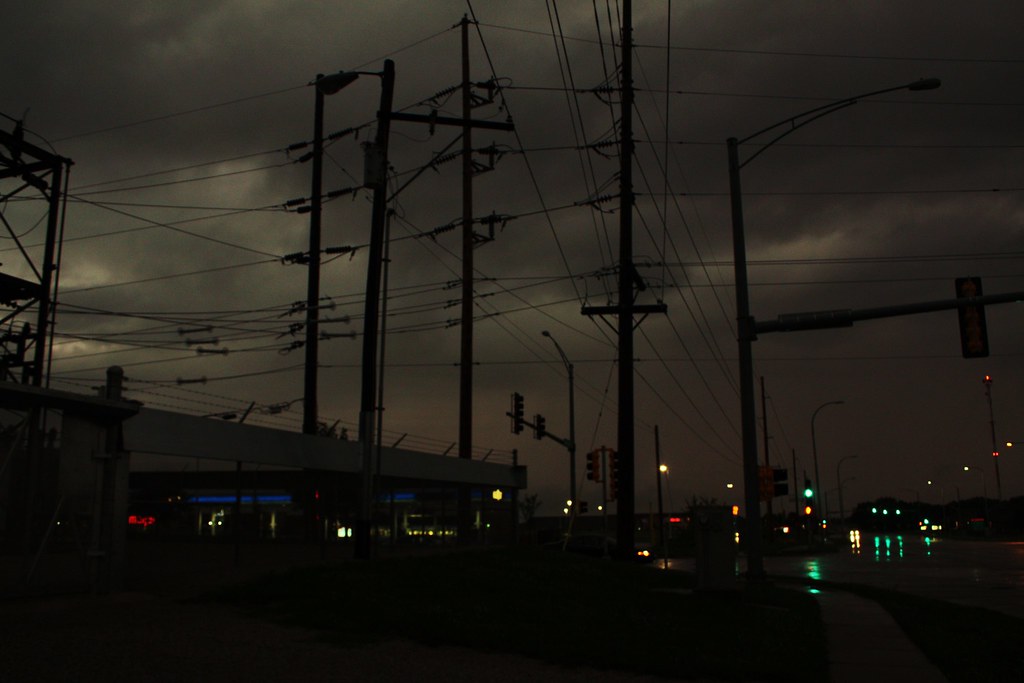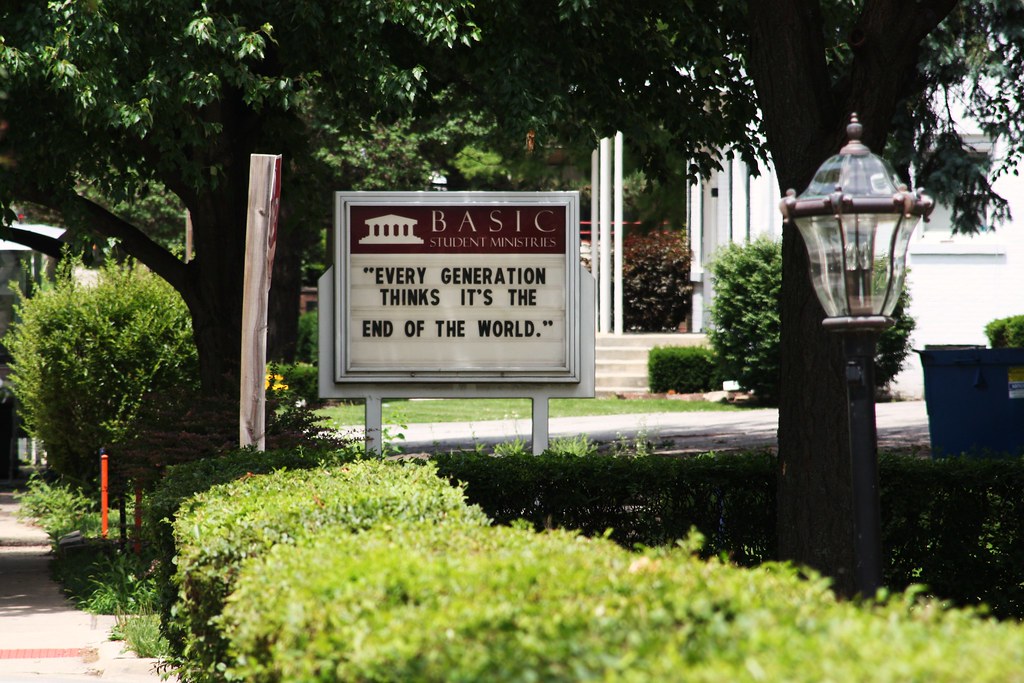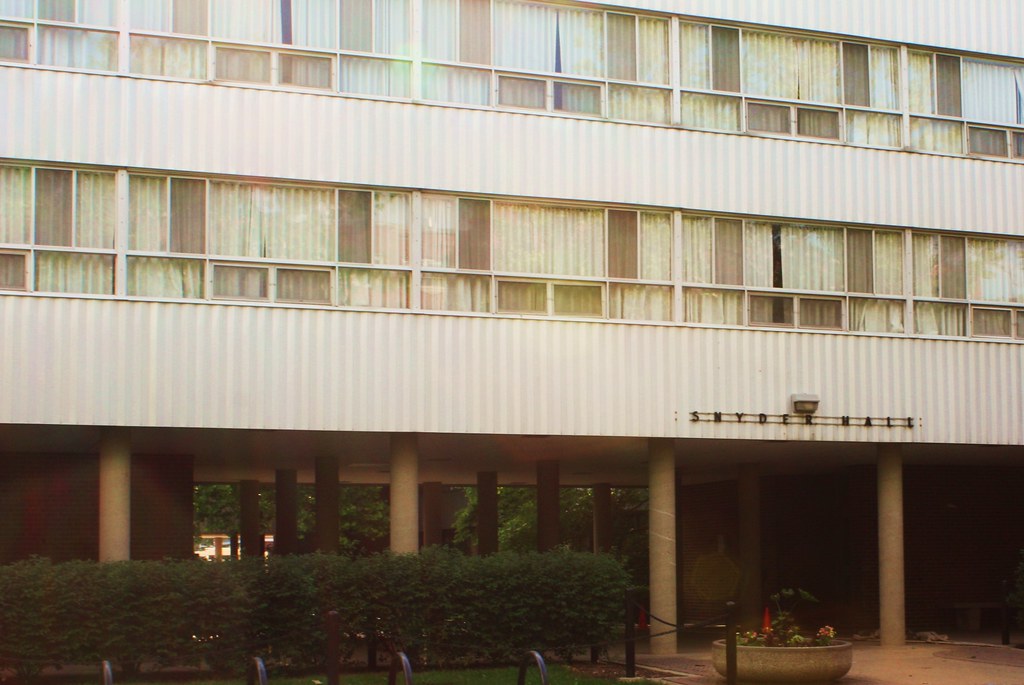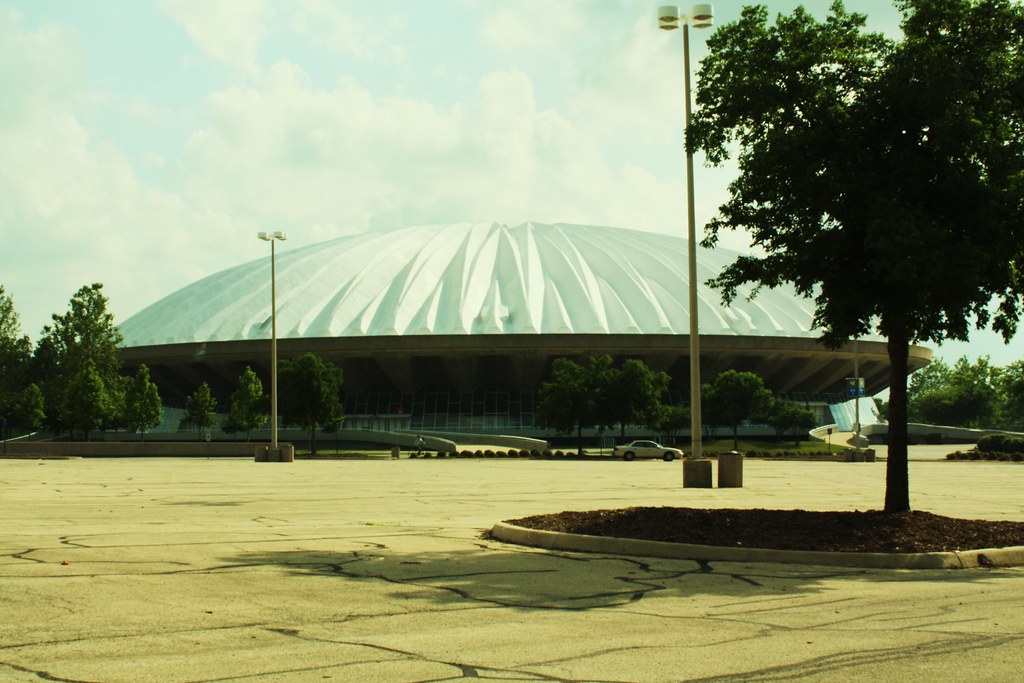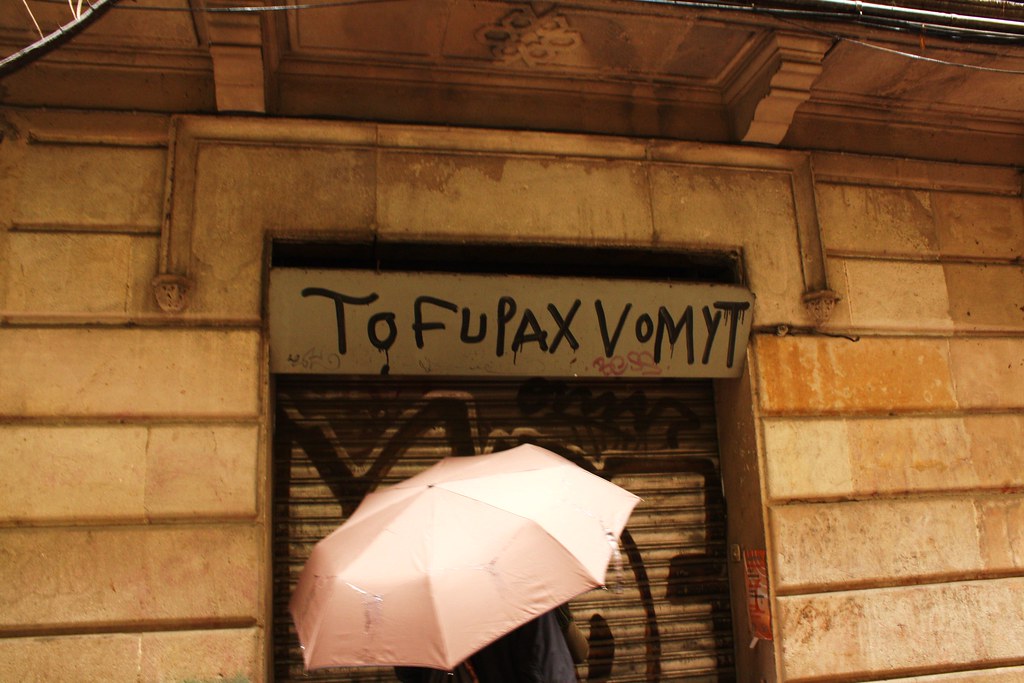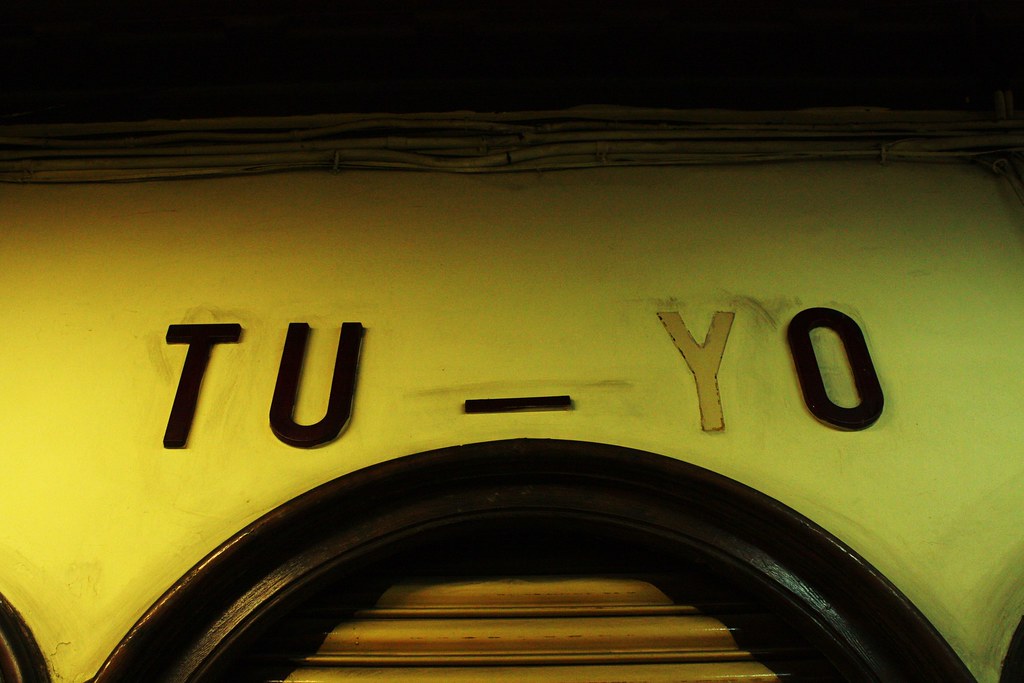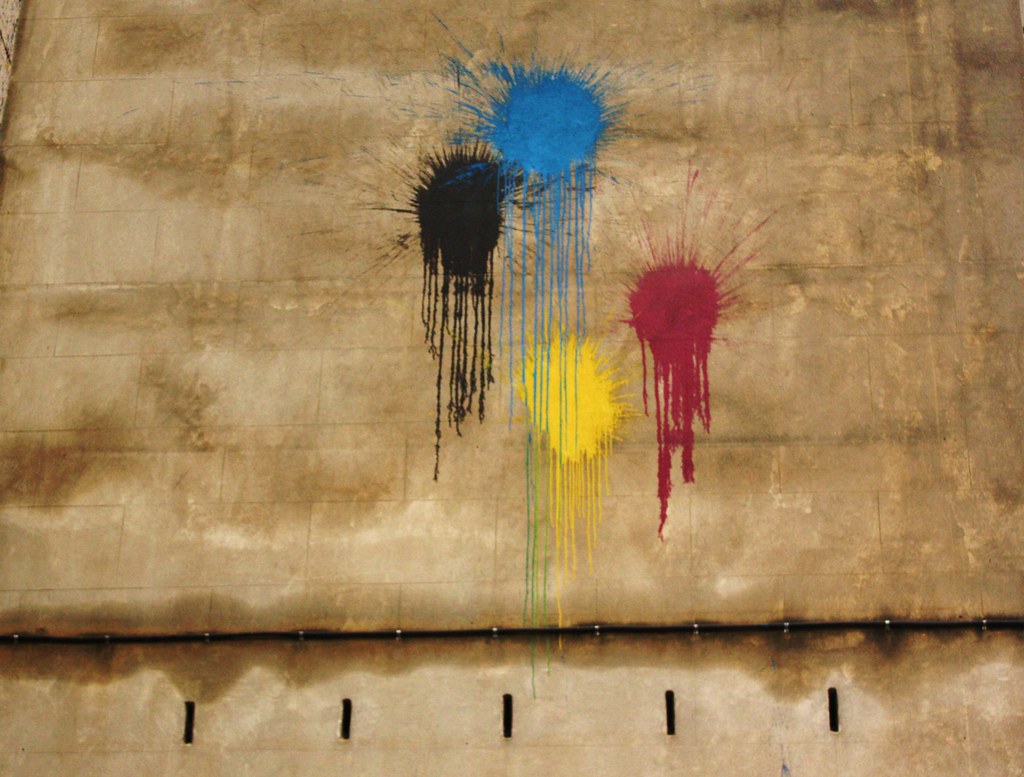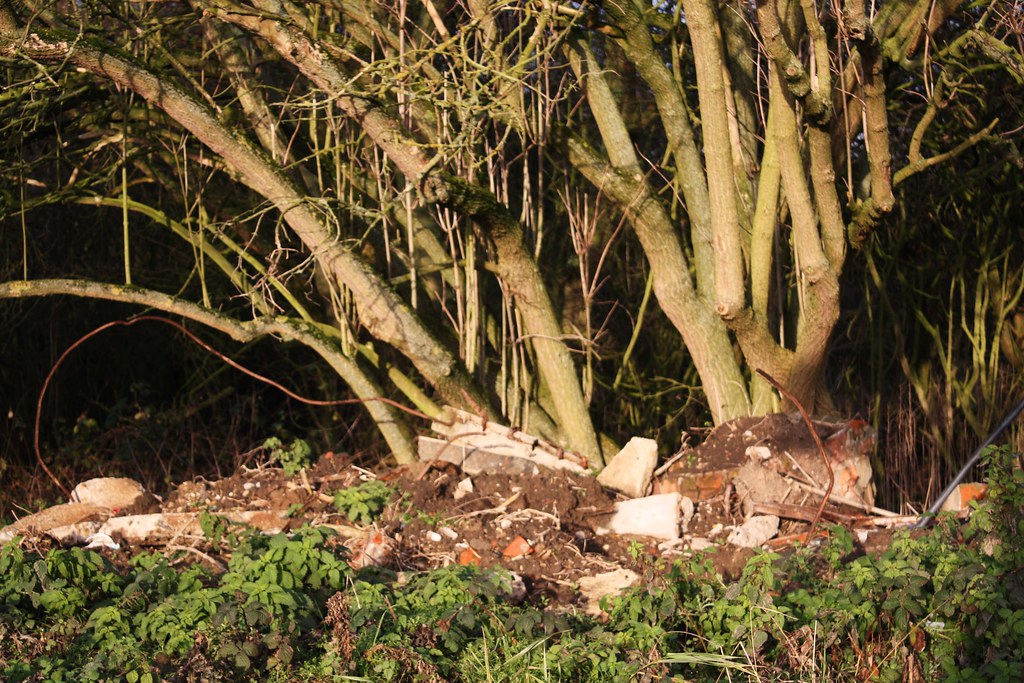Been a little busy lately...
...back soon.
Friday, December 3, 2010
Wednesday, August 4, 2010
DINING OUT
I wish I could say this was an ill-fated dinner party I attended. In fact, I will say this was an ill-fated dinner party I attended...
...
...
Thursday, July 29, 2010
THE LONG, LONG DEATH OF THE NOVEL
Apparently, novelist and critic Gabriel Josipovici has launched an “outspoken attack” on the contemporary British novel. Though you wouldn't know it from this article in the Guardian today, in which Josipovici sticks the boot into Martin Amis, Julian Barnes, Ian McEwan and Salman Rushdie, all of whom began their careers in the mid-seventies.
To be fair to him, Josipovici appears to be reacting against a much-heralded “renaissance” in the British novel in the 1980s – Dominic Head's recent book The State of the Novel: Britain and Beyond echoes these sentiments – a perception chivvied along by the introduction of big-money, big-publicity fiction prizes and efforts to caricature the preceding post-war period in British fiction as provincial, parochial and anachronistic. Still, he's lain in wait a good long while to launch his attack. Josipovici's broadside seems rather more at home in the old “situation of the novel” turf wars between Malcolm Bradbury, Bernard Bergonzi and David Lodge, than the 2010, now-with-added-iPads, incarnation of this perennial debate.
Josipovici's book is the latest (although with Barnes et al up against the wall, probably the most retrograde) iteration of recent debates that pitch the contemporary novel against a likely opponent and find the former lacking. For his modernism, see also near-constant speculation on the challenge to the novel's primacy by non-fiction, the short story, and the entity that threatens not only the form but also the medium of the dog-eared, spine-cracked paperback, the internet. There's certainly a debate to be had about the forms and functions of fiction today; in the midst of these portents of its own demise, the novel is being laden with moral and cultural imperatives as never before. However, these staged ties in the literary press seem like mere grist to the mill. It's unclear to what end Grub Street's hand-wringing is directed – is this ramping up of cultural anxiety intended to give our novelists a kick up the arse or just the opportunity for a little eschatological bandstanding? Let's just say this isn't the rigorous, robust debate we need on the fortunes of this most liberal humanist form after the death of liberal humanism.
Though, for sure, it's gratifying to take pot shots at these “arrogant and self-satisfied” literary éminences grises, I'd question how valid – and indeed how radical – such an intervention is. Though what constitutes this Josipovici's “modernism” remains unclear (it seems to reside, for the purposes of the Guardian article, in a rather woolly “sense of destiny”) the Amazon preview of the book tells me that he characterises modernism as “art coming to consciousness of its own limits and responsibilities”. I would suggest that both Grub Street and Ivory Tower might do similar.
Labels:
"the death of the novel",
literature,
modernism
Monday, July 19, 2010
ANY OTHER CITY
Chicago is pretty much the coolest city I've ever visited, in the proper, old-fashioned, sense of the word.
Thursday, July 8, 2010
I met you under the balloon, on the occasion of your return from Norway; you asked if it was mine; I said it was. The balloon, I said, is a spontaneous autobiographical disclosure, having to do with the unease I felt at your absence, and with sexual deprivation, but now that your visit to Bergen has been terminated, it is no longer necessary or appropriate. Removal of the balloon was easy; trailer trucks carried away the depleted fabric, which is now stored in West Virginia, awaiting some other time of unhappiness, some time, perhaps, when we are angry with one another.
Wednesday, June 16, 2010
LOW SLUNG
Ah! So that's where the fine minds behind those out-of-town retail developments got their inspiration from. The strip mall, where if you're on two feet, you're probably one of those mads fucks with placards on the street corner, yelling about the end of the world. Here, I was honked at for walking. For walking!
Now, I'm really not being all squeamish here, I promise, but it really is completely impossible to be a pedestrian here. In fact, they set you booby traps: footpaths that snake off to nowhere, parking lots that test your long distance fettle and four-lane freeways with no crossing for three miles. It's megalophobic stuff: just you, a preternaturally enormous sky, and a big, fuck-off Walmart.
Monday, June 14, 2010
...AND I REALISED THERE WERE STILL POSSIBILITIES
Sed realistas, exigid lo imposible.
Tomemos en serio la revolución, pero no nos tomamos en serio a nosotros mismos.
Millonarios de todos los países, uníos, el viento cambia.
Todo comienza en la mística y termina en política.
(inscripciones en los muros de Francia, "El Corno Emplumado", octubre 1968)
El Corno Emplumado - a story from the sixties from Anne Mette W. Nielsen on Vimeo.
ORANGE SKIES
Mother Nature behaves like a mardy toddler here. Hot, sweaty and over-excitable all day, culminating in a mack-off, thunderous tantrum around 4pm. But she makes up for it just before bedtime, pulling sunsets like this out of the bag.
Saturday, June 12, 2010
COME ON, FEEL ILLINOIS
So, I'm in the Midwest on what is, ostensibly, a research trip, but might be more truthfully categorised as a four-week long gawping residency. I'm at the marvellous and upstanding Dalkey Archive Press (support 'em, they're the good 'uns) at the University of Illinois, spending hot, sticky Midwestern days prying into the personal correspondence of writers too dead to complain about it, and too obscure for any (scratch that, many) other buggers to care. Man, if you only knew the handwriting I've caressed these past two weeks. The press itself operates out of what looks like a ship's container, hoisted into the middle of the university's Department of Veterinary Sciences. Perhaps this is all a Pygmalian-esque exercise in improving the reading habits of horses, I'm not sure. And, of course, I'm griping about the heat, the humidity, the rare-ass "sharp" cheddar, with all the vigour of a big old limey jonesing for her first shot at being "exotic".
Anyway, here's the bit where I note, smugly, that all your worst suspicions about America are true:
#1. Bread. Now, I'm not about to get all precious about crust and olive oil content, but, my God! I have never seen - and made puerile pantomime with - so many flaccid baguettes. Supermarkets here appear to be shilling tawny pillows with delusions of grandeur.
#2. Cars. On the subject of bread, it's a 45-minute hike for a loaf. Yes, yes, I get it, I'm in a town in the Midwest, what did I expect? However, I still can't get used to the fine-honed logistical operation required to, you know, buy a cup of coffee. These cities are built to four-wheel dimensions, and it's making all my urbanist nodes ping. I didn't see a single other pedestrian for the first four days I was here, and I've ended up feeling rather embarrassed about using the pavement, like the gap between the roadside and the verge is here for decorative purposes only, and I'm despoiling it.
#3. The constant imagined threat of tornadoes. The weather is big here, massive. On Memorial Day (in a despair at not receiving a single invite to a festive cook-out from my new friends on the checkouts at Schnucks), I was shaking the torrential rain out my hair outside Walgreens like a fetid Labrador, when a ginormous bolt of lightning came down from the sky directly above. It was quite the Gothic scene. Now, I've no doubt my colleagues' stories of Tornado Terror are in almost completely directed towards, let's say, "yanking my chain", but "ominous wind" seems to mean something rather different here. Like a good and cautious Girl Guide, I demanded the pleasant be-slacked men in the Accommodation Office here drill me in What to do in the Event of an Emergency. Apparently you just hide in the cellar.
And with that, and the uncomfortable knowledge that my cultural experience thus far seems to extend as far as bread and cheese, I'm out.
Thursday, May 13, 2010
THE SCHOOL OF AMERICAN WHIMSY, A MANIFESTO: DISCUSS
The deepest purpose of reading and writing fiction is to sustain a sense of connectedness; to resist existential loneliness; and so a novel deserves a reader's attention only as long as the author sustains the reader's trust.
- Jonathan Franzen, "William Gaddis: Mr Difficult"
- Jonathan Franzen, "William Gaddis: Mr Difficult"
A PASSION THAT GOES BEYOND SENSE OR REASON
Since this PhD o' mine is rapidly becoming an exercise in skirting around the question What Makes Good Stuff Good, today I bring you a BBC film by architecture critic Reyner Banham (second only in my heart to Osbert Lancaster), from a time when the future still looked appealing.
Labels:
ACADEMIC,
TOTALLY IMMORTAL INCREDIBLENESS
Saturday, May 8, 2010
SAME AS IT EVER WAS
I spent the last few days in Barcelona, a city half-remembered from visits in previous lives, like the Reading Week R n' R I self-prescribed during my first year at University. This was a four-day exercise in being thoroughly over-excited that culminated in following a trail of rose petals along La Rambla in search of a friend, after she employed a bouquet as weapon of choice in a fight with a prostitute. Then, Barcelona seemed like a most lascivious city, a playground and enabler for the nineteen year-old waifs and strays that rolled in via Barcelona Sants Estacion to wear shorts in November and drink little tinnies of Estrella Damm until 10am, then squeeze in a bit o' culture before retiring to their hostel bunks. A rather different place to the one I visited on a school trip at fourteen, where we followed our Spanish teacher's itinerary, comprising a morning at El Corte Inglés – “Europe's largest department store”! – and an afternoon spent touring a Royal Navy battleship moored in the harbour.
Barcelona appears to be cleaning up its act, however. The residents of the city have had enough of idiots like me ricocheting up and down the shady lanes of at all hours powered by the local brew and have put their feet down. Banners declaring "Volem un Barri Digne" (We Want a Decent Neighbourhood, opposing public boozing, sex and urination found on Barcelona's streets - yes, generally at the same time - appeared first in el Raval, and then in other neighbourhoods like Barri Gotic and Poble Sec. Though the merriment doesn't seem to have abated. On my first evening, lolling on the fountain at Placa Real supping a beer and feeling fairly nonchalant about the first drip-drips of rain that later formed a 48-hour torrential downpour that only abated on the morning of my departure, I met a pub crawl tout from Sheffield, a slightly desperate former Butlin's bluecoat with a leatherette tan acquired from three weeks working the backpacker beat. He had a pat line in personal tragedy, said he's split with his girlfriend whilst on holiday here (“She said we're breaking up. I said, I can hear you perfectly fine, love”), cadged a summer job and was now having A Really Great Time All The Time (Honestly!) pressing the flesh in as many ways as he could muster.
The beach at Barceloneta is still full of dudes shilling henna tattoos, cerveza, then, after a sizing-you-up beat, hash and they'll always be a gargantuan group of German schoolchildren in the hostel room next door providing a chorus of hurling all night long. The Barcelona Pipa Club, ostensibly a members-only pipe smoking enthusiast's joint, is still patronised by ex-pats frazzled on something more than booze. You'll still get lost in the higgledy piggledy lanes of the Barri Gotic, but always find your way home via the wide, planned boulevards of L'Eixample. Either way, I'm happy anywhere with a decent number of supermarkets (for anthropological thrills: live lobsters! inexplicable vegetables!), that gives good streetlife and has an urban spread that encourages walking so much your legs start easing out of their hip sockets.
Wednesday, April 21, 2010
SCUM FACTOR
In the attempt to avoid becoming, as Ann Quin would put it, an anal-retentive researcher, I stopped constructing vertiginous reading lists on the back of envelopes and actually started writing my PhD. That's “writing” - by the way – as a peculiar synonym for the masochistic attempt to whittle one's life down piece-by-piece to the most meagre constituent parts. No kidding, nutbar as I am, the simple task of welding together a few off-cut thoughts to present to your supervisor as the first, blessed fruits of a six-month endeavour somehow becomes prison drama, involving the sitting on a chair for 12 hours, pecking fitfully at keyboard with only the most parsimonious of sustenance (bits of cheese, generic-brand Hobnobs). I find it best to conduct all one's affairs as if under the governance of some kind of imaginary Evil Stepmother, don't you?
However, acknowledging that I wasn't quite being my most perfect self as a 26-year old woman in full control of their faculties, a couple of days ago I went out to get some fresh air. No doubt my housemates appreciated it, the metronome pacing from the attic was probably starting to jar. Now, in a previous life, when I lived in Budapest, this kind of cut-price flaneury was hobby, exercise and anthropology in one. In fact, if you counted the daily heckling from the tramp on the corner of our block, you could pretty much include “social life” too. Once I'd tramped home turf in the 7th, the genteel 5th, the down-and-dirty 8th, and caught the tram out to Budapest's garden suburbs to be met with a chorus of barks from every dog in the 12th, I did the dusty arterial roads, the panelhaz estates of Angyalföld, the abandoned hotels and boat clubs on the Buda riverside. Needless to say (and this would probably be a fair summing up of the last six months) Durham is not quite the same. Before moving here, I'd made uneasy peace with the fact that the streetlife here would never match the raucous, inexplicable to-ings and fro-ings of Budapest, though Newcastle's Bigg Market definitely comes close. Though the view from the top of Gilesgate hill, as the cathedral and castle hove into view on stilts will never get old, when I was casting around for something to look at through my camera lens, it's Durham peculiar brand of urban pastoral that got me.
The city's chocolate box, of course, and with the tea rooms and bric-a-brac shops that cater for those who come here in search of that kind of thing. In term time, Durham's numbers double with students – those with the post-coital hair and the vowel sounds that elicit an involuntary wince. As the cobbles and gingerbread peter out, the “city” looks like most northeastern towns – air of somnalence, tinge of deprivity – a thumbprint on the Durham coal field bisected by arterial roads porting buses to unlikely-sounding places (Money Slack! Pity Me?), and watched by the rows of houses slung across the crests of the hills that overlook the city.
The River Wear, which cradles the old part of the city – the cathedral, the castle, the bailey – in the nook of its elbow, begins to meander out towards the A1, and the town recedes. I like this funny hinterland, this corona of crap filled with the bits the city expels and peopled by anoraked dog walkers. Here wooded hollows are home to household waste that has coalesced to form ersatz murder scenes – ropes, rags, bicycle carcasses, bits of barbed wire. There's a leisure centre that looks more like a circa-Education Act 1944 primary school, not the usual Fosterian conservatory – all low-slung brick, a maze of corridors sized for 8 year-olds. It's surrounded by a moraine of sporting detritus – inexplicable metalwork, fencing, the apparatus of races past – greige set off by the determined red of the running track and the lawned green of the pitches. Closer town, Durham's gangs – hardly the Crips, come on – are using the closed-down swimming pool as their HQ – an upgrade from the adventure playground, I guess. Behind there, I found an empty plot razed by fire, and the sandpit, cheery murals and a mess of plastic tricycles that indicated to used to be a nursery.
Monday, February 15, 2010
WHATEVER HAPPENED TO...?
The thing that has made the glory of English literature is description simple concentrated description not of what happened nor what is thought or what is dreamed but what exists and so makes the life the island life the daily island life. It is natural that an island life should be that. What could interest an island as much as the daily the completely daily island life. And in the descriptions the daily, the hourly descriptions of this island life as it exists and it does exist it does really exist English literature has gone on and one from Chaucer until now. It does not go on so well now for several reasons, in the first place they are not so interested in their island life because in short they are not so interested. And in the next place because it is not so much an island life.
- Gertrude Stein, "What is English Literature"
Subscribe to:
Comments (Atom)


